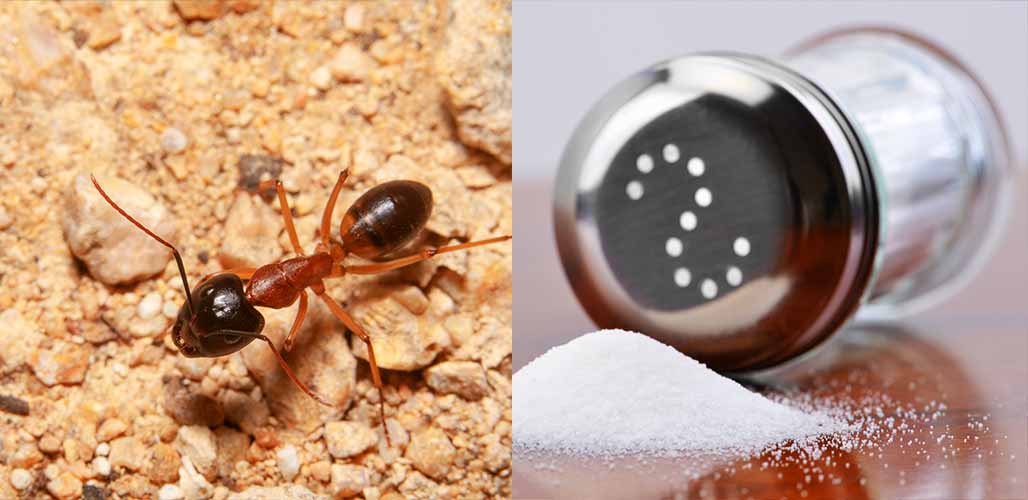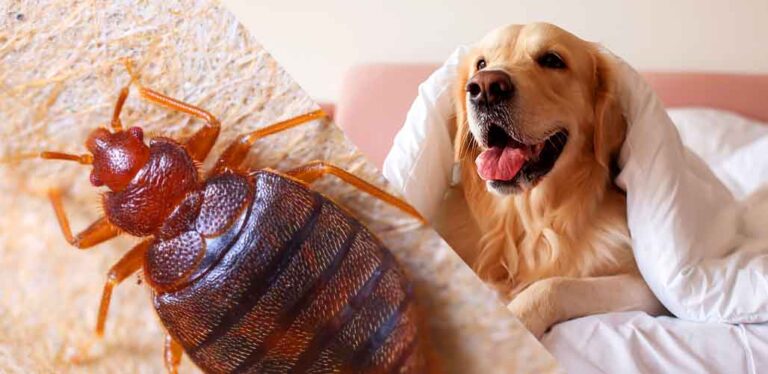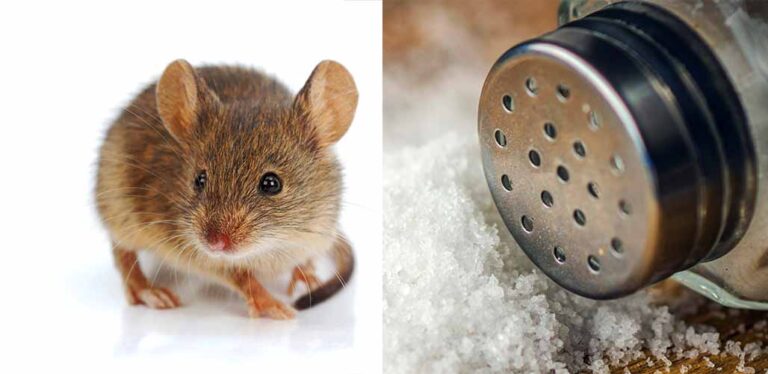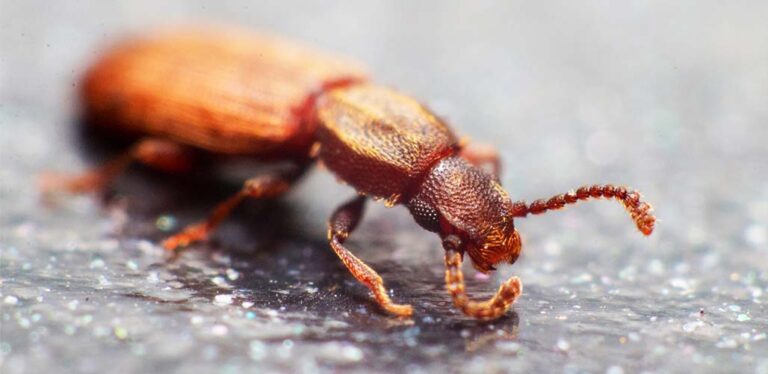Does Salt Kill Sugar Ants?
Does salt kill sugar ants? Every year, the tiny ants commonly called “sugar ants” find their way into kitchens, pantries and even stranger places inside homes around the world. What are these ants after? Nutrients, of course! But there is a lot more than meets the eye when it comes to identifying and combating these small and determined household invaders. Today I’ll share whether you can successfully kill sugar ants with salt and how to get rid of this pest.
Contents
- What are sugar ants?
- Does salt kill sugar ants?
- Are ants attracted to salt?
- Can ants cross a line of salt?
- Does sprinkling salt kill ants?
- Dealing with ant infestations
There are a lot of pests that salt is used to kill. It works for some, like slugs for example. Others, like mice, it actually attracts. But what about those sweet little sugar ants?
What Are Sugar Ants?
Sugar ants get their common name from their habit of congregating on and around the sweetest food items in your kitchen. But there is something many people do not know about sugar ants. True sugar ants like banded and black-headed sugar ants are natives only to one area on Earth – Australia.
This means the many-legged insects crawling around on your window sills are much more likely to be a different species entirely, perhaps the pavement ant, odorous house ant or pharaoh ant. A pest control expert can give you a definitive identification.
But of course, what you want more than an i.d. is a solution – how do you get rid of sugar ants? Will salt work to send them packing?
Does Salt Kill Sugar Ants?
The easiest way to describe the relationship between sugar ants and salt is “it’s complicated.” In fact, some research shows that sugar ants actually prefer salt to sugar! This is not good news if you are trying to use salt to get rid of sugar ants.
The simple answer to the question does salt get rid of sugar ants is “it depends.” All living beings need access to salt to survive. Ants that live in or near coastal regions or forested areas find it easier to get the salt they need than more urbanized inland ants.
This doesn’t mean you can’t use salt to rid your home of sugar ants. But you need to use it strategically as the following sections describe.
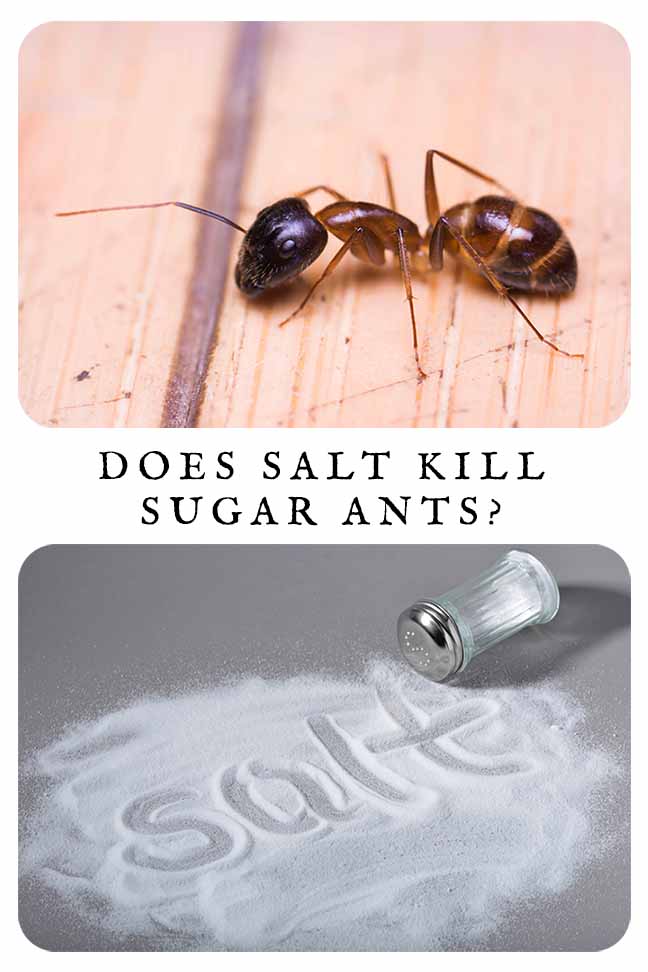
Are Ants Attracted To Salt?
Ants, and especially herbivorous species, can be attracted to salt just like they are to sugar. Sugar provides needed energy. Salt helps them with fluid balance.
This is why simply sprinkling salt won’t necessarily deter sugar ants from entering your home. But you can still use the attractant properties of salt to your advantage when repelling a sugar ant invasion. Read on to find out how.
Will Ants Cross a Salt Line?
Will ants cross a salt line that is intended to act as a barrier to entry? Here again, the answer depends on a number of variables, including how thick and long the salt line is, what other attractants are present and how badly the ants need available resources inside your home.
Ants that are not salt-deprived may cross right over the salt line and march on into your space in search of sugar or moisture.
Salt-deprived ants may not cross the salt line, but that doesn’t mean they won’t linger and consume the salt. Since you don’t want ants lingering for any reason, this means a salt line isn’t the best choice in defending your home from ants.
Does Salt Kill Ants If You Sprinkle It?
Sprinkling salt is unlikely to be any more effective than laying down a salt line to discourage ants from proceeding on into your home. In inland areas, sprinkling salt may even encourage salt-deprived sugar ants to gravitate towards your house, which is the opposite of what you want.
A much better way to kill sugar ants using salt is to mix salt with boiling water. After the salt is dissolved and the water has cooled slightly, pour the mixture into a spray bottle and spritz any areas where you’ve seen ants or where ants are likely to congregate.
This mixture doesn’t kill ants instantly. But it does dehydrate their bodies over time by using the natural moisture-attracting property of salt. You can use any type of salt – Epsom salt, table salt, sea salt or other types of salt.
What Kills Ants Instantly?
When you have been fighting back an ant infestation, it is easy to lose patience and just want to see them gone yesterday. However, your cause will be helped once you understand how so-called sugar ants find new moisture and food sources and take over a space.
Ants have an internal hierarchy. Each ant has a specific role to play. Scout ants are the ants that the colony sends out to find water and food. So when you see just a few ants here and there, these are probably scouts who are trying to find out if your house has what the colony needs.
What does this mean for your attack strategy? It means you want to make sure the scouts at least make it back to the colony alive before they die and deliver the bad news that your home is not a safe place. If you only have scout ants at this time, a slower acting solution like water and salt spray will dehydrate them, but not so quickly they can’t get back to the colony.
Dealing With Ant Infestations
If you have a full-on infestation, you will want to use something faster-acting like diatomaceous earth, baking soda with sugar, boiling water with dish soap or boric acid. You can also make a paste of things like salt, peanut butter and boric acid.
Another potentially effective strategy is to use strong-smelling solutions like peppermint essential oil, vinegar, garlic, pepper or citrus to erase the scent trails ants use to communicate with each other.
By using strong scents to destroy their communication network, you can effectively erase the trails the scout ants leave to find their way back to your house so they can’t return.
Does Salt Kill Sugar Ants?
Salt on its own is unlikely to kill sugar ants. But now you know that by combining salt with very hot water or in pastes, you can accelerate its dehydrating properties to kill ants over time.
Have you found an effective way to kill or repel sugar ants that doesn’t involve pesticides? We would love to hear your solution – please share your story in the comments.

